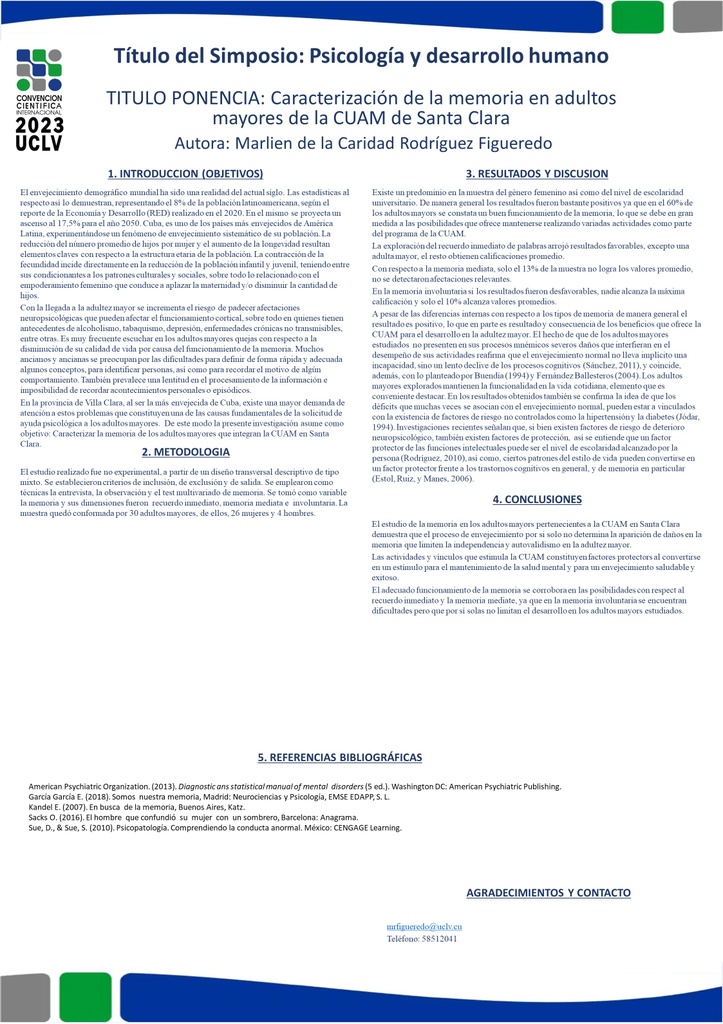Executive Secretary

VIII Simposio Internacional "Psicología y Desarrollo Humano" 2023

El envejecimiento demográfico mundial es una realidad del actual siglo. Cuba, es uno de los países más envejecidos de América Latina. La reducción del número de hijos por mujer y el aumento de la longevidad resultan determinantes de la estructura etaria de la población. El incremento de la esperanza de vida al nacer y el promedio de años por vivir que conduce al crecimiento de las personas de más de 60 años y da cuentas del envejecimiento poblacional implica un reto para el sistema de salud, y demanda la reorganización de la sociedad, la familia, la producción y los servicios. Ante tal contexto, constituye un imperativo garantizar un envejecimiento exitoso. Para ello, se debe propiciar la adaptación a las nuevas condiciones, físicas, psicológicas y sociales. Con la llegada a la adultez mayor se incrementa el riesgo de padecer afectaciones neuropsicológicas que pueden afectar el funcionamiento cortical, siendo frecuentes las quejas con respecto a la disminución de su calidad de vida por causa del funcionamiento de la memoria. Teniendo en cuenta lo antes referido se define como objetivo general de la investigación: Caracterizar la memoria de los adultos mayores que integran la CUAM en Santa Clara. Se realizó un estudio no experimental, a partir de un diseño transversal descriptivo de tipo mixto. La muestra quedó conformada por 30 adultos mayores y como principales resultados se obtuvieron 2 ancianos con marcadas dificultades en la memoria, 10 con dificultades en la memoria, 17 con buena memoria y uno con muy buena memoria.
Global demographic aging is a reality of the current century. Cuba is one of the oldest countries in Latin America. The reduction in the number of children per woman and the increase in longevity are determining factors in the age structure of the population. The increase in life expectancy at birth and the average number of years to live, which leads to an increase in the number of people over 60 years of age and accounts for population aging, implies a challenge for the health system and demands the reorganization of society, the family, production and services. In this context, it is imperative to guarantee successful aging. To this end, adaptation to new physical, psychological and social conditions must be promoted. With the arrival of older adulthood, the risk of suffering neuropsychological affectations that may affect cortical functioning increases, being frequent the complaints regarding the decrease in the quality of life due to memory functioning. Taking into account the aforementioned, the general objective of the research was defined as follows: To characterize the memory of older adults who are members of the CUAM in Santa Clara. A non-experimental study was carried out, based on a descriptive cross-sectional design of mixed type. The sample consisted of 30 older adults and the main results were 2 elderly with marked difficulties in memory, 10 with difficulties in memory, 17 with good memory and one with very good memory.
Sobre el ponente

Prof. Marlien de la Caridad Rodriguez Figueredo

Discussion